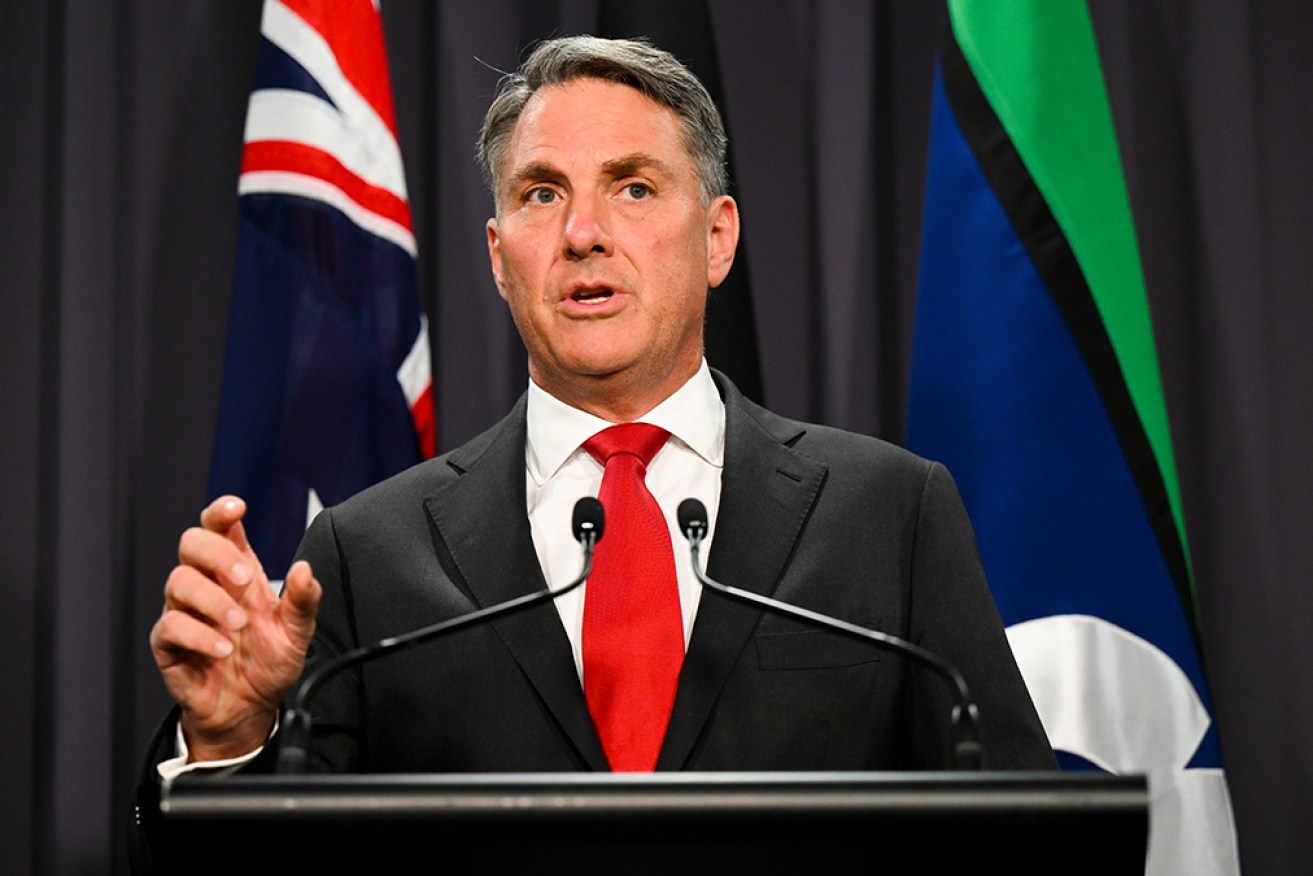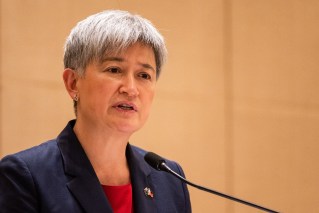No easy solution to solving Chinese relationship puzzle

Richard Marles says the government is working closely with Australians stranded in Palestine. Photo: AAP
The defence minister has warned against simplifying Australia’s relationship with China as it tries to balance trade interests against a rapid military build up.
Richard Marles said the nation needed to face inconvenient truths, that China remained both Australia’s most significant trading partner as well as a source of significant anxiety in the Indo-Pacific as the government continues to push Beijing to remove punitive trade impediments.
He said the path to a stable relationship was on course but it was a complex and difficult task.
“There’s not a way around the complexity of that, which is why we’ve made clear that we will work with China where we can, we will disagree with them where we must,” he told reporters in Canberra on Tuesday.
“But at the end of the day, we value a productive relationship with China. That’s obvious because China matters.”
His comments follow a major speech given at a defence summit on Monday night, where he said the relationship shouldn’t be viewed through “simplistic platitudes”.
“There are significant human rights issues in China. All of us have been vigilant in raising these issues at every occasion,” he said.
“By the same token, China’s growth story has played a crucial role in the single biggest alleviation of poverty in human history. Never mentioning it doesn’t mean that it didn’t happen.”
Mr Marles says the defence force needs to focus on keeping Australia’s maritime supply chains open with a significant portion of trade and resources arriving via sea.
He said China’s militarisation of the South China Sea with artificial islands against international laws was an example “of how China has, over the last decade, sought to shape the world around it in a way it has not done before”.
“This is a massive expansion of the Chinese military and it is happening without any transparent explanation to the region or the world about its purpose,” he said.
Opposition Leader Peter Dutton said it was clear the global order needed to reckon with authoritarian nations, saying “the age of autocrats is not behind us”.
Whether it’s in Eastern Europe or the Indo-Pacific, authoritarian regimes have become emboldened to use force and coercion to achieve their ends, he told the same summit.
Mr Dutton said the problem with calling out China’s opaque military build up was that is was underpinned by the assumption Beijing was interested in transparency.
“That it could be convinced to change its behaviour and provide strategic reassurance, that it agrees with – and indeed values – the rules-based order,” he said.
“When we apply democratic standards to authoritarian regimes, we slip into a dangerous denial of these regimes’ true behaviour and intent.”
This meant diplomacy wouldn’t always be successful, he said.
“We must be cognisant that despite the best minds and efforts, diplomacy doesn’t always succeed – as much as we hope it always will,” he said.
“So while we continue with our strenuous efforts in diplomacy, we must put the accelerator down on defence deterrence.”
– AAP







